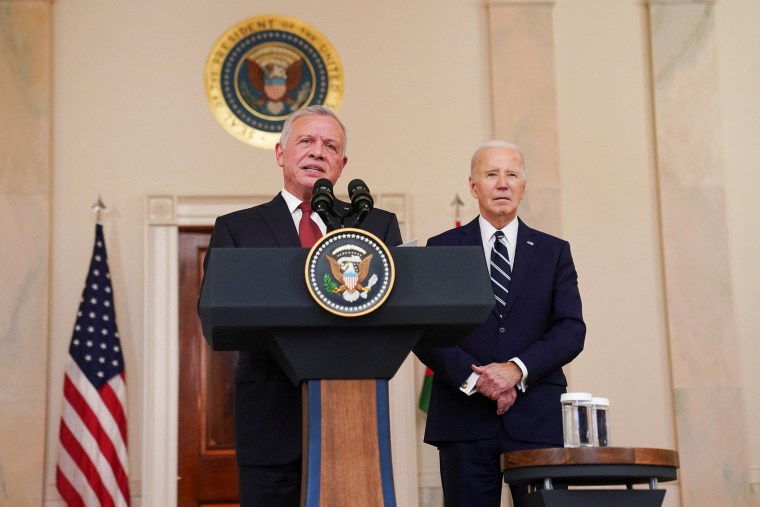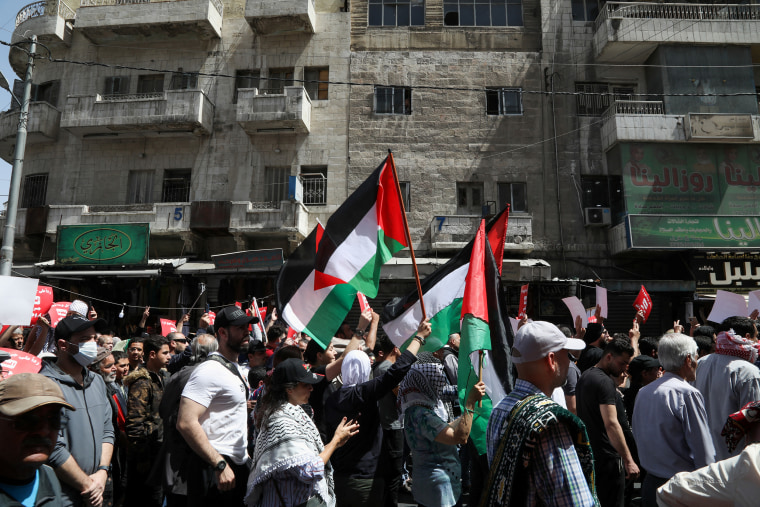BEIRUT, Lebanon — Following Iran’s unsuccessful retaliatory attack on Israel, which was prevented with the assistance of the United States and Middle Eastern allies, the Biden administration has emphasized the role of the “coalition” in averting a potential regional conflict.
However, analysts suggest that an Israeli response could strain the informal coalition that includes Saudi Arabia, Jordan, and the United Arab Emirates, as their joint efforts against Iran may have domestic repercussions.
Oraib Al Rantawi, director of the Al Quds Center for Political Studies in Jordan, highlighted the delicate situation faced by these Arab countries, particularly Jordan, which is caught between Iran and Israel due to geopolitical factors.
After the coordinated operation successfully intercepted Iran’s missiles and drones, National Security Council spokesperson John Kirby described it as a significant military achievement that underscored Israel’s regional standing compared to Iran’s increasing isolation.
Ahmad Shoura / AFP – Getty Images
Despite the successful operation, there was restrained acknowledgment of the events in the Middle East from America’s allies in the region.
Jordan’s Foreign Minister Ayman Safadi emphasized the country’s commitment to defending its sovereignty and airspace, even against Israel, in a televised statement on Monday.
The Iranian attack was purportedly in retaliation for an incident in Damascus that killed Iranian military personnel, allegedly at the hands of Israel. Israel’s potential response could further test Jordan’s resolve.
Of the Arab states involved in Israel’s defense, Jordan played a unique role due to its proximity to Israel and its direct involvement in the operation against the drones.
The participation of Saudi Arabia and the United Arab Emirates in sharing intelligence with the U.S. to protect their airspace signals a shifting dynamic in the region.

Kevin Lamarque / Reuters
While the UAE normalized relations with Israel earlier, Saudi Arabia’s intentions were disrupted by recent events. Both Gulf states are reliant on Western support, with Saudi Arabia seeking a security pact with the U.S.
Jordan’s involvement in the coalition contrasts with its past criticism of Israel’s actions in Gaza, reflecting its dependence on American and Israeli support.

Alaa Al Sukhni / Reuters
Despite Jordan’s large Palestinian refugee population, the country recognized Israel in 1994 and relies heavily on Western aid.
Jordan’s recent defense agreement with the U.S. highlights its strategic ties with America, potentially limiting its flexibility in foreign policy decisions.
The evolving situation in the Middle East poses challenges for Jordan in balancing public opinion with its diplomatic engagements with Israel and the U.S.
The current regional tensions underscore the longstanding rift between Sunni Arab states and Shia Iran, with the ball now in Israel’s court to determine its next move.
“Things can become very messy if the Israelis try to retaliate over Jordanian airspace,” said al-Omari.








